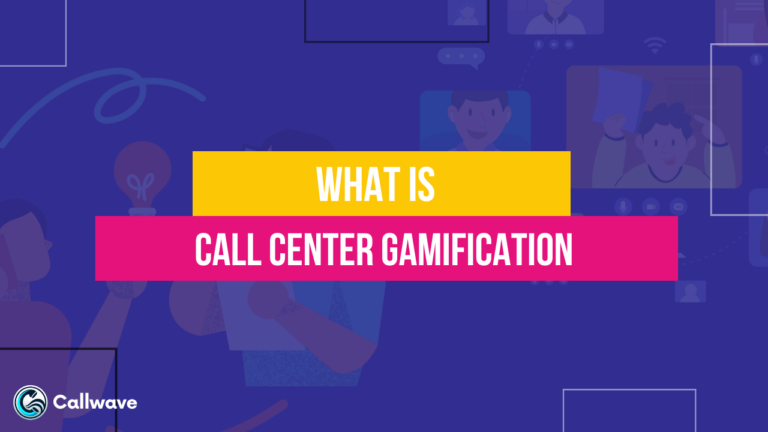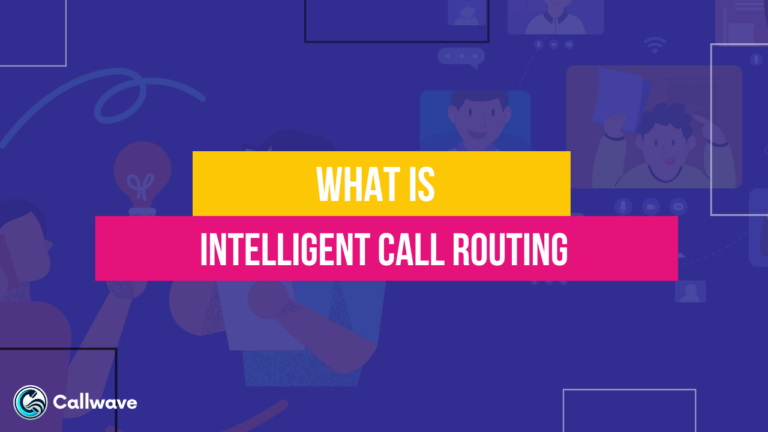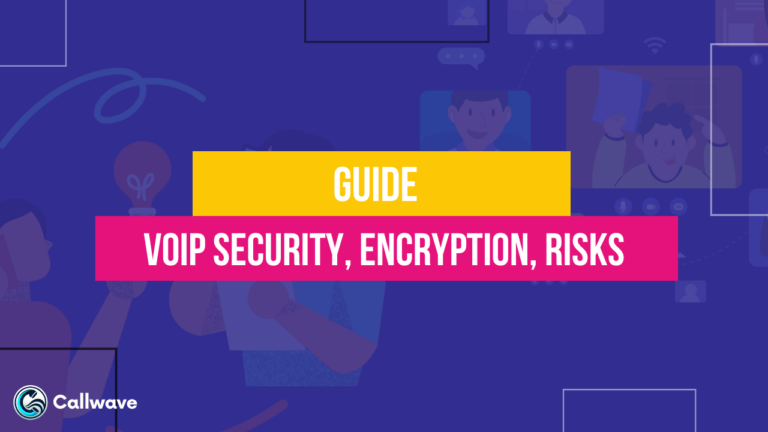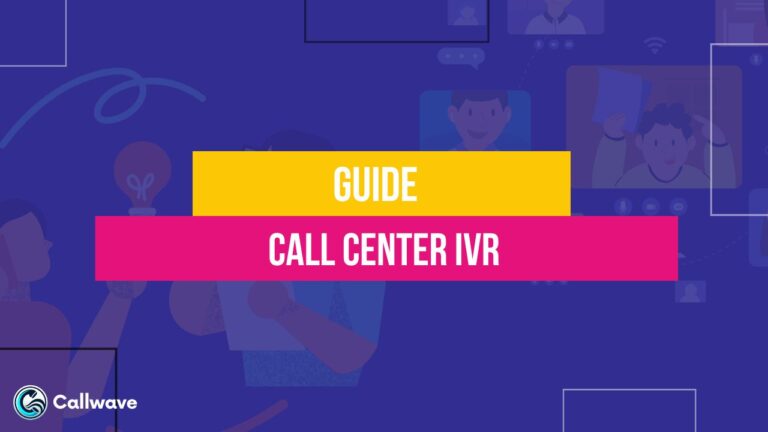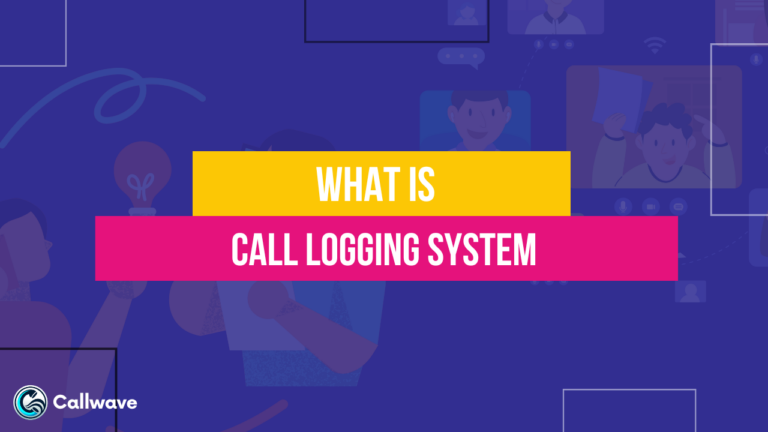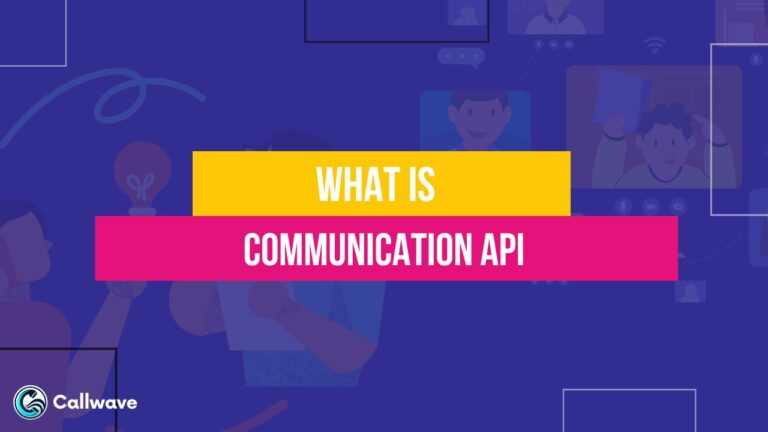Being a business owner, most of us are already reaping the benefits of cloud-based technologies for various aspects of your operations. From phone systems and customer relationship management (CRM) solutions to file sharing.
One crucial component of modern business communication that has also transitioned to the cloud is Interactive Voice Response (IVR) systems.
Cloud IVR solutions provide a flexible and scalable way for companies to handle inbound calls, automate routine tasks, and enhance customer experiences.
In this article, we’ll explore what cloud IVR entails, its benefits for small businesses, and highlight some of the top providers in the market.
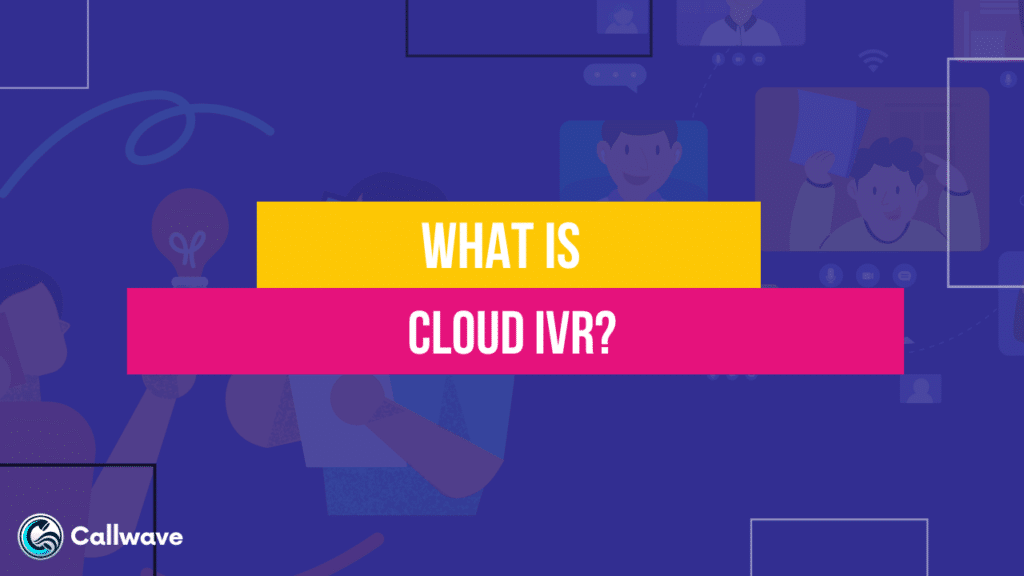
What is Cloud IVR?
Cloud IVR (Interactive Voice Response) is a technology that enables businesses to handle and route incoming calls automatically through a cloud-based system.
It is a software-based solution that replaces traditional on-premises IVR systems, offering several advantages in terms of scalability, flexibility, and cost-effectiveness.
Let’s delve deeper into the details of Cloud IVR and how it works.
How Cloud IVR Works?
Cloud IVR systems are hosted on remote servers in the cloud, managed by a service provider.
When a customer calls a business’s phone number, the call is routed to the Cloud IVR system through a Voice over IP (VoIP) connection or a standard telephone network.
The Cloud IVR system greets the caller with a pre-recorded message or menu, often referred to as a “voice menu” or “call flow.”
The caller can then interact with the voice menu using touch-tone inputs or voice commands, depending on the system’s capabilities.
Based on the caller’s input, the Cloud IVR system can perform various actions, such as routing the call to the appropriate department, agent, or information source, capturing caller data, or providing self-service options.
Cloud IVR systems can integrate with Customer Relationship Management (CRM) systems, databases, and other business applications, allowing for seamless data exchange and personalized caller experiences.
Key Features and Benefits
Scalability: Cloud IVR systems can easily scale up or down to handle fluctuating call volumes without the need for additional hardware or infrastructure investments.
Flexibility: Cloud IVR solutions can be easily configured and customized to meet the specific needs of a business, with the ability to update call flows, menus, and prompts quickly and efficiently.
Cost-effectiveness: By leveraging cloud infrastructure, businesses can avoid the upfront costs associated with purchasing and maintaining on-premises IVR systems, as well as reduce ongoing maintenance and upgrade expenses.
Remote Management: Cloud IVR systems can be managed and monitored remotely, allowing businesses to make changes and access call data from anywhere with an internet connection.
Disaster Recovery and Business Continuity: Cloud-based IVR solutions offer built-in redundancy and failover mechanisms, ensuring high availability and business continuity in case of local outages or disasters.
Advanced Features: Cloud IVR providers often offer advanced features such as speech recognition, text-to-speech capabilities, call recording, and call analytics, enabling businesses to enhance their customer interactions and gain valuable insights.
Use Cases and Applications:
Customer Service: Cloud IVR systems can streamline customer service operations by providing automated self-service options, routing calls to the appropriate agents, and capturing customer data for personalized experiences.
Call Centers: Cloud IVR solutions are widely used in call center environments to handle high call volumes efficiently, distribute calls based on agent availability and skill sets, and provide callers with self-service options.
Sales and Marketing: Businesses can leverage Cloud IVR systems for outbound campaigns, lead generation, and sales support by automating call routing, capturing lead information, and integrating with CRM systems.
Appointment Scheduling: Cloud IVR solutions can be used to automate appointment scheduling processes, allowing customers to schedule or reschedule appointments using voice or touch-tone inputs.
Surveys and Feedback Collection: Cloud IVR systems can be utilized to conduct automated surveys, collect customer feedback, and gather valuable data for analysis and improvement.
As businesses continue to embrace digital transformation, the adoption of Cloud IVR solutions is expected to grow, enabling organizations to streamline their call-handling processes, enhance customer satisfaction, and gain valuable insights from call data.
Who Should Use Cloud IVR?
Cloud IVR solutions can be beneficial for a wide range of businesses and organizations across various industries. Here are some examples of entities that should consider using Cloud IVR:
Call Centers and Contact Centers: Call centers and contact centers that handle high volumes of incoming calls can greatly benefit from the scalability and flexibility offered by Cloud IVR systems.
These solutions can streamline call routing, provide self-service options, and integrate with CRM and other business applications for enhanced customer experiences.
Healthcare Organizations: Healthcare providers, such as hospitals, clinics, and medical practices, can leverage Cloud IVR to handle appointment scheduling, triage calls, provide information about services, and route calls to the appropriate departments or healthcare professionals.
Financial Institutions: Banks, credit unions, and other financial institutions can use Cloud IVR to provide customer support, account information, and self-service options for common transactions, such as balance inquiries, fund transfers, and loan applications.
Retail and E-commerce Businesses: Retailers and e-commerce companies can utilize Cloud IVR for order tracking, customer support, and handling inquiries related to products, shipping, and returns, providing a seamless customer experience.
Travel and Hospitality Industry: Hotels, airlines, and travel agencies can benefit from Cloud IVR solutions for reservations, customer service, flight status updates, and other travel-related inquiries.
Government Agencies and Public Sector Organizations: Government agencies and public sector organizations can use Cloud IVR to handle citizen inquiries, provide information about services, and route calls to the appropriate departments or personnel.
Utility Companies: Utility companies, such as electricity, water, and gas providers, can leverage Cloud IVR for customer support, billing inquiries, service requests, and outage reporting.
Educational Institutions: Schools, universities, and other educational institutions can use Cloud IVR to handle inquiries related to admissions, registration, course information, and student support services.
Small and Medium-sized Businesses (SMBs): SMBs can benefit from Cloud IVR solutions as a cost-effective way to provide professional call handling and customer support without the need for extensive hardware or IT infrastructure investments.
Businesses with Seasonal or Fluctuating Call Volumes: Companies that experience significant variations in call volumes, such as seasonal businesses or those with periodic promotions or campaigns, can leverage the scalability of Cloud IVR to handle spikes in call traffic efficiently.
Ultimately, any business or organization that receives a significant number of incoming calls and values customer experience, efficiency, and scalability can benefit from implementing a Cloud IVR solution.
The flexibility and advanced features offered by Cloud IVR providers make it a compelling choice for businesses of all sizes and across various industries.
Best Cloud IVR Platforms
Here are five top cloud-based IVR providers, with a comparison of their pricing, top features, and best use cases:
| Provider | Pricing | Top Features | Best For |
| Twilio Flex | Pay-as-you-go, starts at $1 per hour per agent | Omnichannel routing, AI and ML capabilities, open source platform | Large enterprises, contact centers, developers |
| Amazon Connect | Pay-per-use, starts at $0.018 per minute | Natural language processing, machine learning, integrations with AWS services | Businesses of all sizes, call centers, AWS users |
| Five9 | Starts at $100 per agent per month | Omnichannel routing, AI-powered analytics, workforce management | Mid-sized to large contact centers, enterprises |
| Dialpad | Starts at $20 per user per month | AI-powered voice intelligence, real-time transcription, video conferencing | Small to mid-sized businesses, remote teams |
| 8×8 Virtual Contact Center | Contact pricing for a quote | Omnichannel routing, speech analytics, workforce management | Mid-sized to large contact centers, global enterprises |
1. Twilio Flex
- Pricing: Pay-as-you-go, starts at $1 per hour per agent
- Top Features: Omnichannel routing, AI and ML capabilities, open-source platform, programmable and customizable
- Best For: Large enterprises, contact centers, developers looking for a highly customizable solution
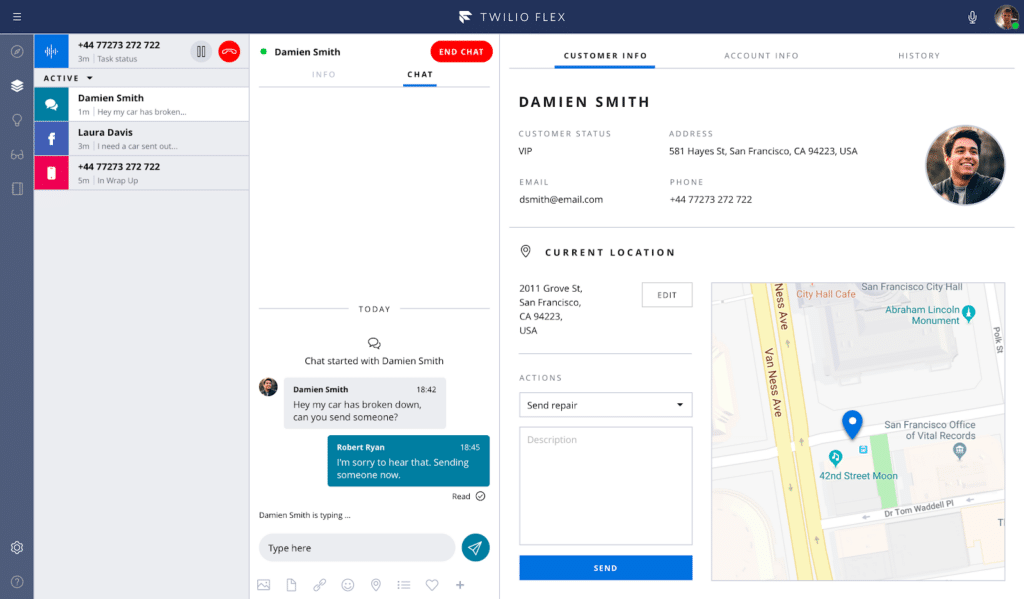
2. Amazon Connect
- Pricing: Pay-per-use, starts at $0.018 per minute
- Top Features: Natural language processing, machine learning, seamless integrations with AWS services
- Best For: Businesses of all sizes, call centers, AWS users looking for a tightly integrated solution

3. Five9
- Pricing: Starts at $100 per agent per month
- Top Features: Omnichannel routing, AI-powered analytics, workforce management, outbound campaign management
- Best For: Mid-sized to large contact centers, enterprises seeking advanced features
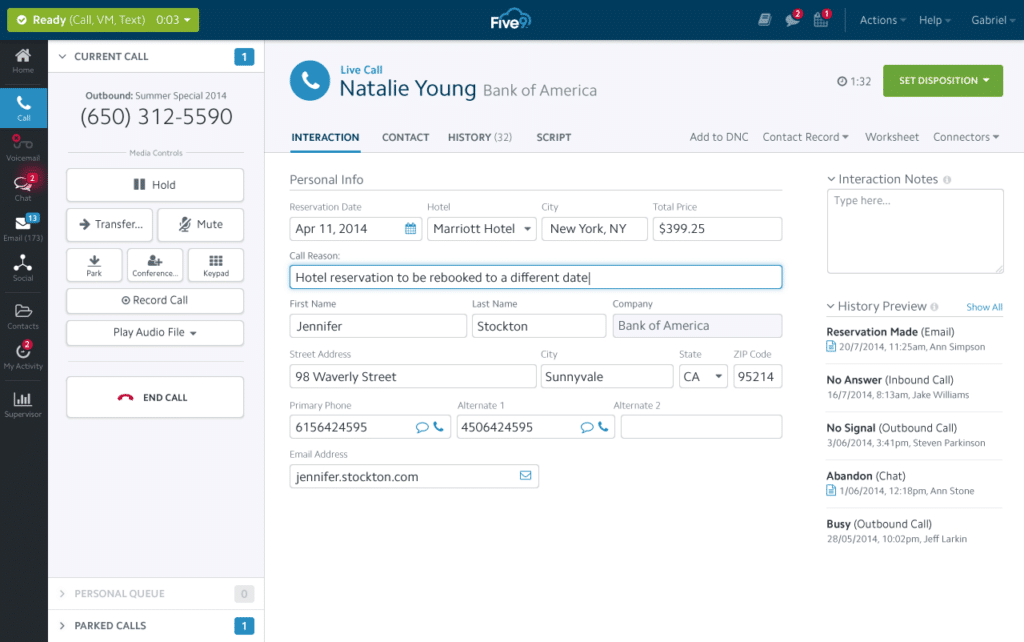
4. Dialpad
- Pricing: Starts at $20 per user per month
- Top Features: AI-powered voice intelligence, real-time transcription, video conferencing, unified communications
- Best For: Small to mid-sized businesses, remote teams, and companies prioritizing unified communications
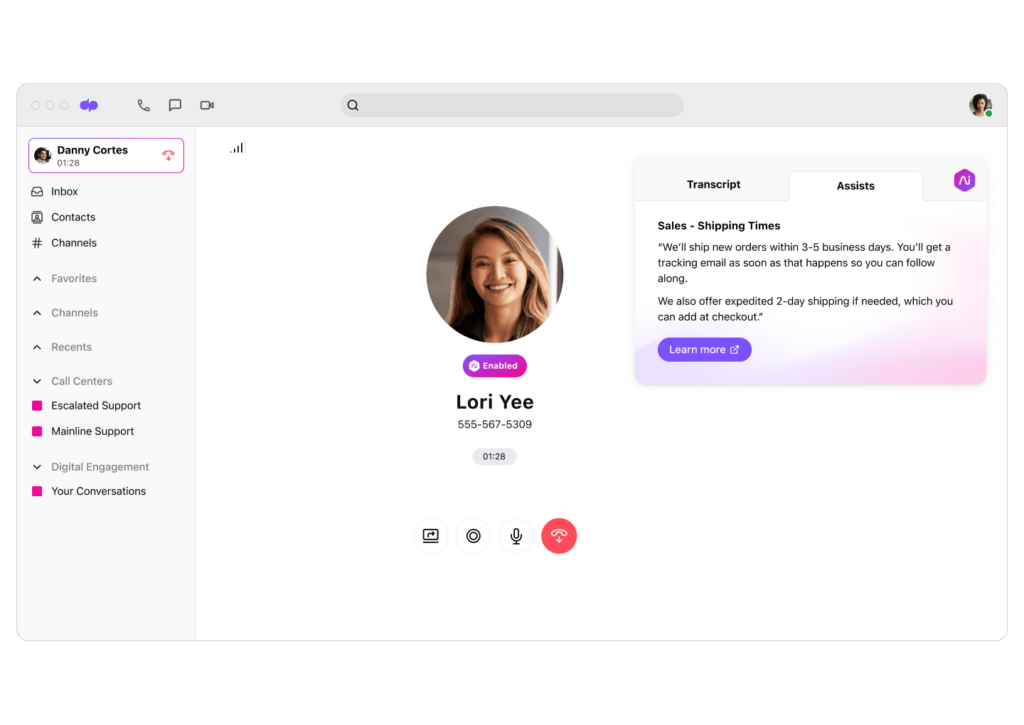
5. 8×8 Virtual Contact Center
- Pricing: Contact pricing for a quote
- Top Features: Omnichannel routing, speech analytics, workforce management, global deployment
- Best For: Mid-sized to large contact centers, global enterprises, businesses with international presence
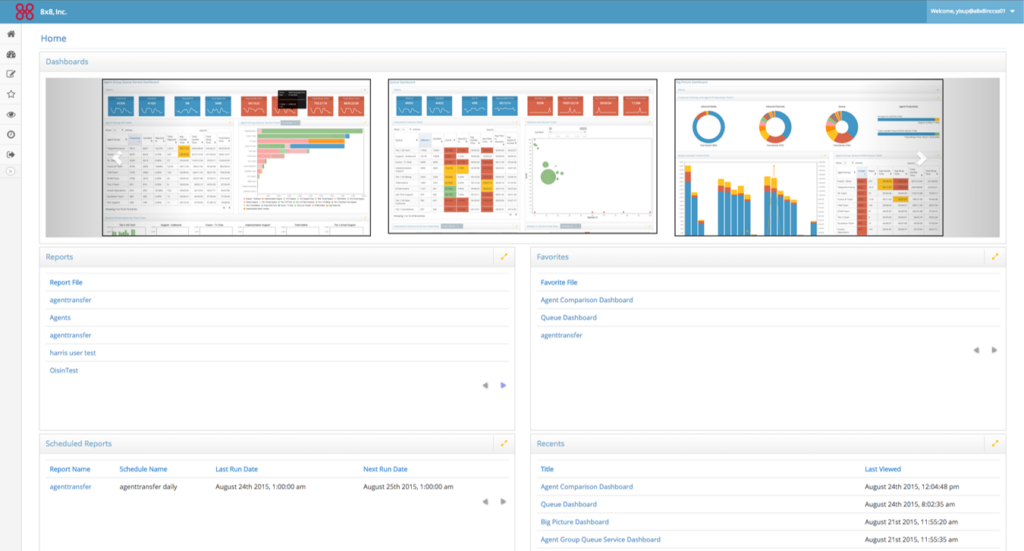
FAQs
Ques 1. What is an IVR used for?
Ans: An IVR (Interactive Voice Response) system is used to interact with callers, gather information, and route calls to the appropriate agents or services.
Ques 2. What is Genesys cloud IVR?
Ans: Genesys Cloud IVR is a cloud-based IVR solution provided by Genesys that allows businesses to create and manage interactive voice response systems.
Ques 3. What is a virtual IVR?
Ans: A virtual IVR is a software-based IVR system that runs on a computer or cloud infrastructure, without the need for dedicated hardware.
Ques 4. What are the two types of IVR?
Ans: The two main types of IVR systems are speech-enabled IVR and touch-tone IVR, which use voice recognition and keypad input, respectively.
Ques 5. Is Genesys Cloud a VoIP?
Ans: Yes, Genesys Cloud is a cloud-based VoIP (Voice over Internet Protocol) solution that provides unified communications and contact center capabilities.

